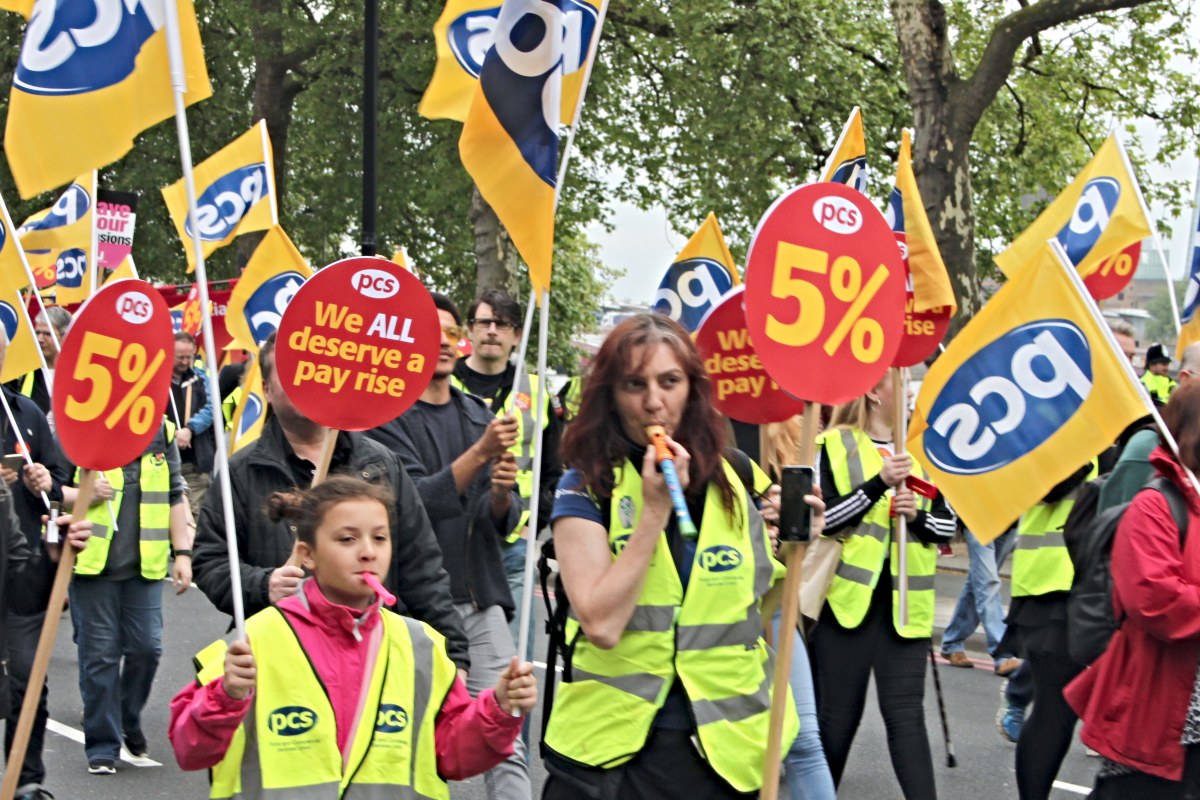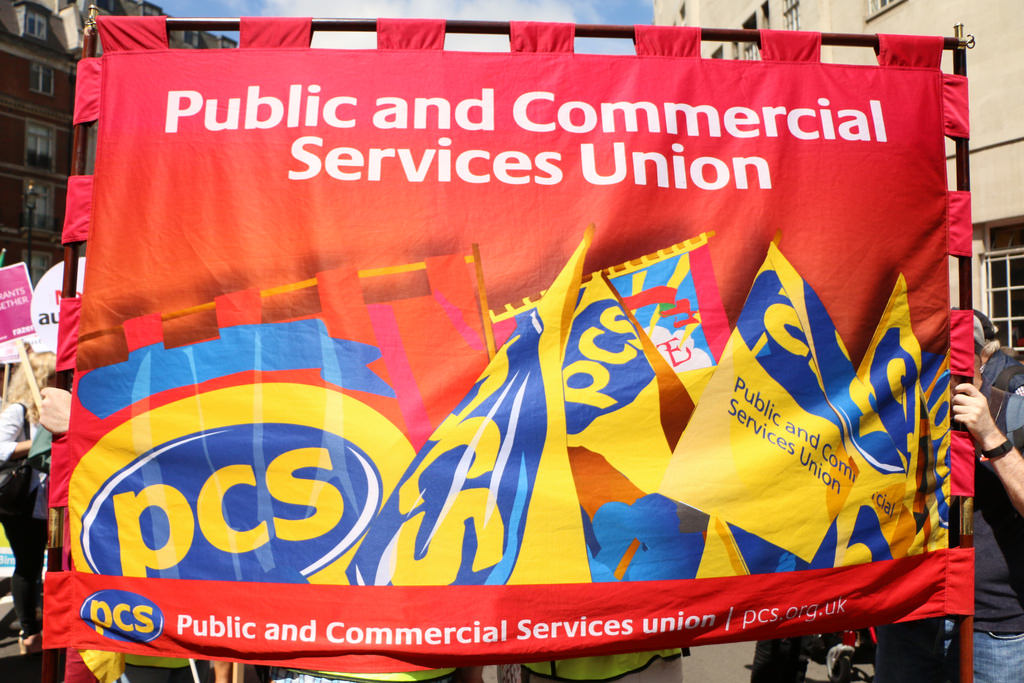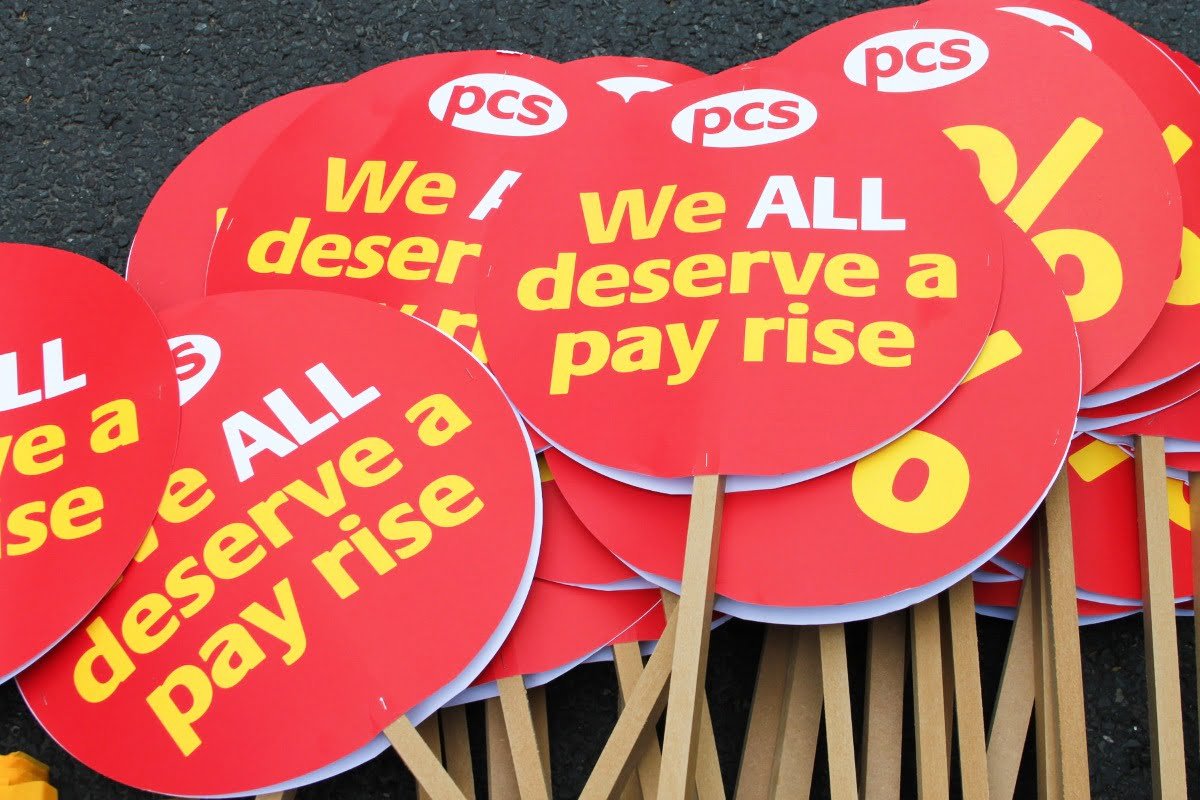PCS members in the civil service are fighting a pay struggle against the Tory government. If successful, this could inspire other low-paid workers to take action.
Workers in the civil service, as elsewhere, have faced years of attacks on their pay and conditions.
Contrary to the impression given by both the Tory government and the media, civil servants are still subject to a pay cap, despite it being partially removed for other public sector workers. This has meant a year-on-year regime of cuts in real wages. Some low-paid civil servants are forced to rely on the very state benefits that they themselves administer.
United action across the whole public sector would be the best way to respond, as the civil service union PCS has emphasised.
“It is clear to activists and workers,” explained PCS NEC member Martin Cavanagh recently, “that coordinating pay campaigns with other unions has been, and still is, the best way to defeat government attacks on our members pay.”
United action
 PCS submitted a successful resolution to September’s TUC Congress on this issue. The union is committed to strive for united action over pay.
PCS submitted a successful resolution to September’s TUC Congress on this issue. The union is committed to strive for united action over pay.
The union realises, however, that PCS members cannot simply wait for this. Last summer, PCS conducted an industrial action ballot over pay. Despite winning a massive majority for strike action of 85% – one of the biggest votes in favour of industrial action in PCS’ history – it narrowly failed to reach the 50% turnout requirement imposed by the government.
This 50% threshold was deliberately imposed by the Tories to frustrate attempts by workers to fight back. This draconian anti-union voting requirement is not applied anywhere else in British democracy, including parliamentary elections. The Tory Party itself was able to form a government with only a 42.4% share of the vote. This law is clearly a class law, designed to favour the bosses, as with all the anti-trade union laws imposed by the Tories.
No shortcuts
 The question of pay was therefore again discussed at a recent meeting of the PCS National Executive Committee. A wide consultation with members has been held to examine the weaknesses and strengths of the last campaign. This will allow the union to build on its strengths.
The question of pay was therefore again discussed at a recent meeting of the PCS National Executive Committee. A wide consultation with members has been held to examine the weaknesses and strengths of the last campaign. This will allow the union to build on its strengths.
Of course, there is no shortcut or magic formula to deliver a successful ballot result – boldness is the key. Other unions have shown that with a concerted campaign the turnout threshold can be overcome.
Based on the consultation, the NEC has agreed a national pay campaign strategy, concentrating efforts on building, organising and giving confidence to the membership. The NEC meeting looked at options of how to take this forward.
Confusing matters
Supporters of Chris Baugh (for the internal PCS elections for assistant general secretary) argued for a disaggregated set of ballots with a shopping list of demands tailored to each PCS group. They called for a pay campaign that “linked pay to jobs and terms and conditions”. But the danger of such a strategy would mean that it could dilute the struggle and confuse matters.
Any disputes fought in this manner would be with individual employers, rather than against the government. It would tend to divide the struggle, rather than unite it around a common purpose.
The government could use this approach to play off one department against another, with concessions on secondary issues to deliberately create divisions. This would be a dangerous course to pursue. It could lead to a fracturing and collapse of the national pay campaign.
It is clear that Chris Baugh and his Socialist Party comrades are allowing short-term internal political considerations to cloud their judgement. It also reflects a lack of confidence in the membership.
Rallying call
The NEC rightly threw out this suggestion, arguing instead for a unified campaign on pay, beginning sometime in the New Year.
With the Tory government in disarray over Brexit, and its future hanging by a thread, there is no better time to fight.
If the union builds up its organisation in workplaces and prepares the ground, there is no reason why the union could not only achieve a successful strike ballot, but breakthrough the Tory-imposed turnout threshold. Such a result would provide a national rallying cry for all low-paid workers to take action.






